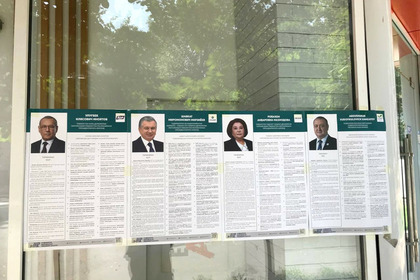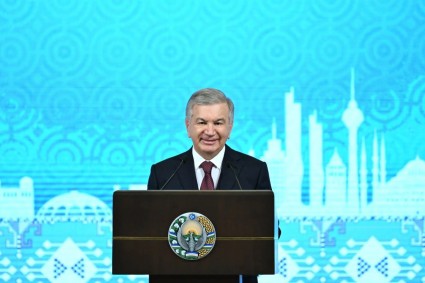The mission of the Office for Democratic Institutions and Human Rights of the Organization for Security and Cooperation in Europe (OSCE/ODIHR) has published an interim report on the presidential elections in Uzbekistan. Traditionally, it lists both positive changes in the electoral legislation and in the country as a whole, as well as shortcomings, which, according to OSCE experts, need to be paid attention to.
The mission is led by Ambassador Urszula Gacek. It consists of 11 core team members based in Tashkent and 24 long-term observers throughout the country. Mission members are drawn from 25 OSCE participating States. 250 short-term observers from the OSCE countries should arrive to observe the procedures on the election day.
The report noted that with the adoption of the updated Constitution, “some measures aimed at ensuring the observance of certain rights got better." The Uzbek authorities have taken into account several previous ODIHR recommendations.
“Recent amendments to the Constitution removed a complete restriction of the right to vote from persons serving a prison sentence for grave and especially grave crimes committed, and from persons recognized as legally incompetent. From now on, the right to vote of these citizens can be limited only by a court decision,” the report said.
In addition, amendments to the Electoral Code expanded the list of disqualification criteria for members of election commissions.
Meanwhile, with regard to some of the long-term recommendations of the OSCE, "work remains to be done," the document says. This applies in particular to “the realization of the fundamental freedoms of association, peaceful assembly and expression, as well as citizen observation of elections and the registration of political parties.” There are also gaps and ambiguous wording in the legislation.
“Legislation governing aspects of registration of political parties, previously assessed by the ODIHR as burdensome and allowing for arbitrary application, remains unchanged. The law does not provide for registration of independent self-nominated candidates as candidates,” the mission notes.
Referring to the Central Electoral Commission, the mission reports that “after the 2023 elections, the authorities intend to bring the electoral legislation in line with the provisions of the Constitution, and consideration of previous ODIHR recommendations will be part of this process.”
Since 2016, the country has continued reforms aimed at strengthening the participation of women in public and political life. The number of women in parliament has risen to 48 out of 150 seats. However, women generally remain underrepresented in the political arena and gender stereotypes persist. Only 2 out of 27 government ministers and 2 out of 12 members of the Supreme Judicial Council are women. All regional khokims are men, the report says.
Voter registration is being carried out passively, based on permanent or temporary residence. Door-to-door rounds were made to clarify the lists of voters and assess the need for mobile voting. However, the issue of the accuracy of the compiled lists remains, since usually a large number of voters are added to additional lists on election day, the mission notes.
As of June 21, the total number of voters declared by the CEC was about 22 million.
The election campaign, which began on June 7 and will run until July 7, is proceeding in a low-key manner “reflecting the lack of opposition to the incumbent,” ODIHR observers say. Campaign events, according to the observations of the mission, were mainly devoted to issues of the economy, health, education, the rule of law, as well as improving legislation in the field of ecology and water management.
During the pre-election events, the incumbent president announced his intention to introduce a number of measures, which were soon enshrined in presidential decrees, the mission notes (she gives examples - the creation of the National Agency for Social Protection, tax cuts in Karakalpakstan, and more).
The report also states that despite previous ODIHR recommendations, the legislation does not provide for the possibility of election observation by civilian observers. Observation can only be carried out by observers from international organizations, political parties, mahalla committees, as well as representatives of the media.















